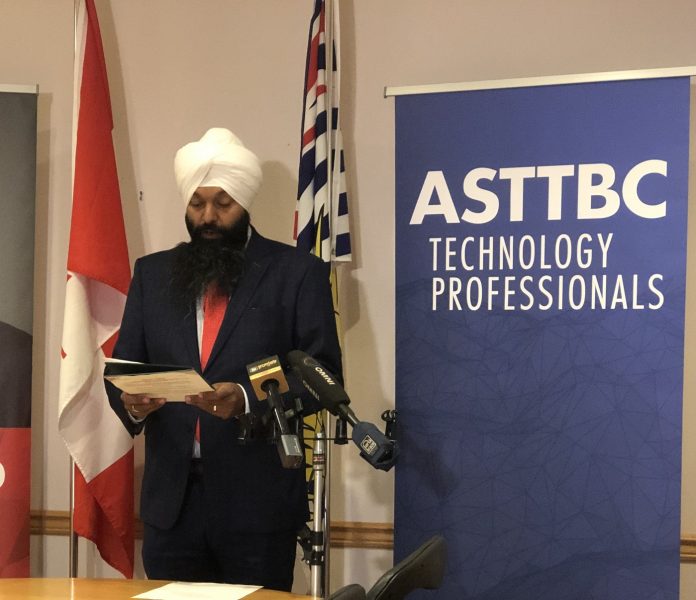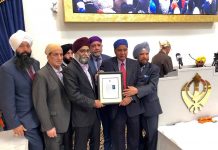
TO ensure a skilled, competitive, and inclusive workforce, the Government of Canada says it is helping newcomers get their credentials recognized – helping them gain Canadian work experience and growing the economy.
Liberal MP Randeep Sarai, on behalf of Patty Hajdu, federal Minister of Employment, Workforce Development and Labour, on Thursday announced a new project to help internationally trained newcomers in Surrey. This investment will help skilled newcomers get their credentials recognized and overcome challenges to finding work in Canada.
The federal government is investing $745,833 over the next 30 months in the Expediting Technology Professionals Labour Market Integration. With this investment, the Applied Science Technologists and Technicians of BC support internationally trained newcomers to find and keep good, well-paying jobs as part of the federal government’s plan to grow the economy, strengthen the middle class and ensure Canada’s future competitiveness.
The Applied Science Technologists and Technicians of BC (ASTTBC) aims to facilitate the integration of Internationally Trained Technology Professionals (ITTP), Canadian military personnel and veterans into the Canadian labor market, through supports for foreign credential recognition. They also aim to develop a process to recognize Canadian military credentials, which will enable Canadian military personnel and veterans to join technology occupations in the private sector. The project is in line with the overall objectives of the Foreign Credential Recognition (FCR) program which are to facilitate the pathway to recognition for internationally trained individuals. All the elements of the proposed project will support the integration of ITTPs in the labor market.
The investment is being made through the Foreign Credential Recognition Program (FCRP), which provides funding to provincial and territorial governments, regulatory bodies, national associations and credential assessment agencies. Governments and organizations use the funding for projects to streamline foreign credential recognition processes. The FCRP also provides loans to newcomers to help them cover expenses related to getting their skills and training recognized. It offers employment support services to help skilled newcomers get their first Canadian work experience in their profession and field of study.
“Our success depends on everyone getting a fair chance at success –including newcomers. Helping newcomers get their foreign skills credentials recognized will allow them to pursue their profession in our workforce, benefitting our economy and our people. Through this investment, we are making sure no untapped talent is left behind. When we give newcomers a fair chance at success in Canada, our economy and our middle class grow\,” said Hajdu.
“We know that diversity is our strength. I am proud that our government is reducing barriers and supporting newcomers as they put their skills to work in communities across Canada. This is especially important for employers that are looking for talent, for attracting greater investment, and for growing our economy,” said Sarai.
Quick Facts
• Recent immigrants (aged 15-64) have a lower employment rate (62.2%) than non-immigrants (71.7%). (Statistics Canada, Census 2016).
• Newcomer women in visible minority groups have a higher unemployment rate (14.4%) than their male counterparts (10.2%). (Statistics Canada, 2011-2016 newcomers to Canada)
• FCR Loans Projects delivers up to $15,000 to eligible recipients to cover costs of getting their credentials recognized and provides direct employment supports.
• The Foreign Credential Recognition Program Call for Concepts (closed April 11, 2019) encouraged the development and implementation of innovation and collaborative approaches that improve the integration of highly skilled newcomers into the Canadian labour market.













